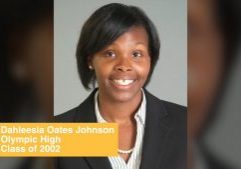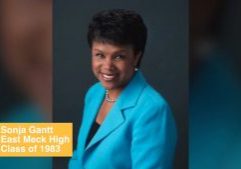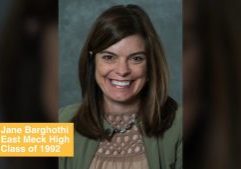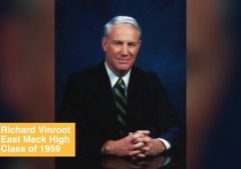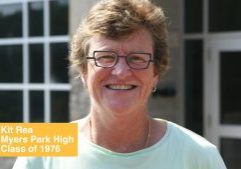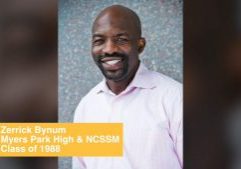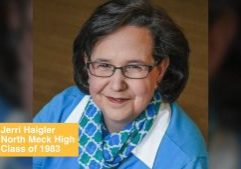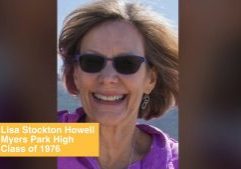Made In CMS
Mebane Rash
East Mecklenburg High, Class of 1991
Hi, my name is Mebane Rash and the most important thing about me is that I’m a public school kid. I attended Irwin Elementary and First Ward Elementary before moving on to McClintock Middle and then East Mecklenburg High School. And everything that I learned in public schools in Charlotte-Mecklenburg has shaped my career and my life.
Currently, I’m the CEO of EducationNC. This year for Teacher Appreciation Week, the National PTA celebrated, quote, “Teachers who deliver so much to our students: inspiration, motivation and, ultimately, their futures.” That left me thinking about honoring the teachers who delivered for me and for us--shaping our leadership today and our collective future.
Linda Fincannon was my guidance counselor at McClintock Junior High School in Charlotte. She started a peer counseling program at the school. Program was taught. It was a fifty-minute class, and we used the textbook “Caring and Sharing: Becoming a Peer Facilitator,” a leadership training program for youth. Fincannon (or Ms. F as we called her) and the program changed my view of the world--helping me see beyond myself. “The peer facilitator movement is the wave of the future in education,” says the preface of the book. We learned attentive listening, facilitation, decision-making and communications.
In the first chapter of the book, we learned about the problems facing the day’s youth and to become more sensitive about the needs of our society by reading and analyzing newspapers as compared to magazines as compared to academic journals. If that sounds familiar, that’s why EducationNC features news stories and research about all things K-12 across North Carolina.
Chapter 3 of the book helped us develop greater awareness of how involved and important the art of listening really is. In one exercise, two talkers exchange points of view and until they agree they understand the viewpoint of the other. Again, sound familiar? That’s why EducationNC features perspectives from the left to the right from students, teachers and policymakers. In Chapter 4, we learned to engage people and facilitate responses. Asking “What?”, “When?”, “Where?”, “How?”, and “Who?” instead of “Why?”. The textbook says, quote, “when a question communicates that you're really interested, that you care and that you want to understand then it is facilitated.” If that sounds familiar, it’s why we think carefully about how we ask questions at EdNC. We know that for many across the state participating in our Reach NC Voices initiative it’s like raising your hand for the very first time.
The book’s five-step decision-making process is the foundation of our iterative nature. Identifying the central issue of a problem, exploring the alternatives and consequences, choosing a next step act and evaluating the results. Then we by turn adjust. We learn that pace matters.
Perhaps, most importantly, the program taught me that quote “no matter what the role or setting one important consideration to remember is to be genuine--to be yourself.” That’s why most days you’ll see me wearing jeans, cowboy boots and a scarf. Recently a student called me out for dressing like a CEO. A powerful reminder that our words and our actions and how we present ourselves to the world need to match up.
Thank you Ms. F. Your book lives on my bedside table. Your ideas are present in all of my work. You delivered.
- Mebane Rash
- Kit Rea
